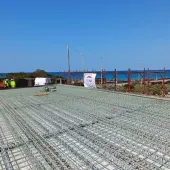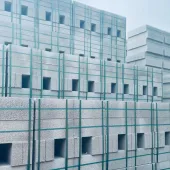Industry urges rethink on landfill tax reform
The British Aggregates Association (BAA) has issued a strong warning over proposed reforms to landfill tax, urging government to avoid “unintended consequences” that could disrupt sustainable construction and undermine the UK’s circular economy goals.
The HM Treasury consultation, which launched on 28 April and closes on 21 July 2025, sets out potential changes to how landfill tax is applied. While intended as a technical review, the BAA says the implications for mineral extraction, recycling, and construction are significant — with risks including increased costs, reduced access to restoration materials, and a rise in illegal dumping.
BAA chief executive Mike Phillips said: “This review will have a significant impact not only on our vital sector, but on everyone who uses minerals in one form or another. Responsible, lawful operators must not be punished for doing the right thing. We need a system that supports good practice, not one that undermines it.”
The BAA argues that imposing a single tax rate on all inert materials, regardless of their end use, would make site restoration and Biodiversity Net Gain (BNG) targets more expensive and, in some cases, unviable. Many mineral sites are legally bound to import clean, inert materials to meet planning conditions for safe restoration and environmental enhancement.
“Increasingly, restoration schemes are designed to meet BNG requirements,” said the BAA. “Regrading, capping, and profiling all rely on inert fill – and these could be priced out if the tax system fails to distinguish between disposal and reuse.”
The association also highlighted the threat of rising fly-tipping if legitimate recycling and waste management costs become unaffordable. With more than £8 billion invested in reprocessing equipment across the sector, members say the reforms risk penalising the very behaviours government claims to support.
In response, the BAA recently hosted a national conference with over 50 industry stakeholders, including quarry operators, recyclers, equipment suppliers, planners, and consultants. The event reinforced widespread industry support for environmentally responsible policy – but also for fiscal regimes that are practical, proportionate and designed to encourage innovation.
“The circular economy is not just a slogan,” the BAA noted. “Our sector is actively investing in plant and machinery to divert materials from landfill and deliver high-value secondary products. That progress must not be jeopardised.”
The association is urging everyone involved in construction materials, restoration, and permitting to submit a response to the consultation before the 21 July deadline. A link to the government consultation can be found on gov.uk under “Consultation on reform of Landfill Tax”.







